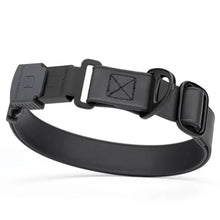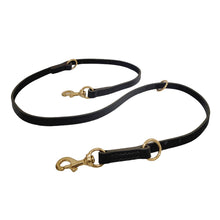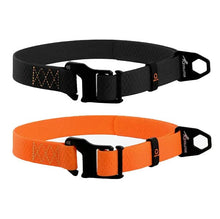What To Do The First Two Weeks Of Having A German Shepherd Puppy

You found the perfect breeder, you've just taken home the perfect puppy, now what? The transition period can be a little intimidating once you get over the cuteness overload and realize that your new puppy has no training whatsoever and it's up to you how things will progress from there. We'll try to make it easier for you with this short list of things to do the first 2 weeks after bringing your new puppy home.
1: Keep it mellow. Your puppy is in a brand new place and it's their first time being away from their mom and siblings. I know you want to bring the puppy with you everywhere, play all day and show him or her off to all of your friends and family. But take it slow at first so that your new puppy can get settled and relax. Hang out at home. Become a professional treat dispenser. And begin the foundation of building your bond with your pup.
2: Introduce your dog to its crate. Crate training is the best way to house train. Introduce your puppy to the crate early on by making it a positive experience. Toss a high value treat inside and let them explore and go inside on their own volition. Place a chew toy that can hold treats into the crate and close the door. Make sure the puppy sees you do this. When the puppy tries to paw and get inside the crate, open the door and let them in. When they start chewing on the toy, close the door for a few seconds before opening. And remember to reward your puppy when it's playing quietly inside the crate and to ignore any whining.

Also remember the rules of potty training using the crate. If the pup just ate or drank, let them outside. If the pup is coming out of the crate for any extended time, let them outside. If your pup is so much as sniffing the ground a little too much, you guessed it, let them outside. The fewer accidents inside the house, the less likely it is for the puppy to get into the habit of going inside the house.
3: Start training now. 8 weeks old is prime time for training. Start immediately with potty training and socialization. Puppies aren't fully protected until their final vaccination at 16-17 weeks, so openly socializing in public isn't the best idea. But you can have friends and family come over to meet your puppy, as well as their fully vaccinated, well behaved dogs and puppies.
You can also begin the foundation of basic obedience commands. 2 weeks doesn't sound like much, but with consistent training, most 10 week old pups will have a basic understanding of basic commands. All that's necessary later on is getting consistency and working around distractions. Unless of course you want to compete in obedience or a sport that requires obedience. Competition makes things a little more complicated than that.

4: Establish a routine. This step is often overlooked and it's arguably the most important step for a new puppy. Puppies love a routine. It's comforting knowing what's going to happen. Wake up in the morning, outside to potty. A little training with treats, breakfast, outside to potty again. A little play time etc. If you have to go to work, make sure you have a friend, relative, dog walker or dog sitter to let the puppy outside if you can't make it home during your break to let the puppy use the potty. They have a tiny bladder and can't hold it for a full workday. When you have a routine that works, things will go smoothly. If you stray from that routine or never establish one, you'll have more accidents, a confused puppy, and quite possibly a headache. Consistency is key, and make sure you throw in several short training sessions. 5-10 minutes per session is plenty.
5: Get your dog license. Most places require these. It may sound silly that you're probably legally required to get a license for your dog, but ... actually, it is pretty silly. But rules are rules. Better safe than fined!
6: Find a good vet or two. A vet who has fair prices for your area, yet is also professional and competent is a must. You will see your vet often enough that they will eventually know your name without having to check the paperwork. So your best bet is to find a good one! Routine checkups, vaccinations, and minor or even major health issues will happen. So build a relationship with a local vet as soon as possible.

Also, if you have a German Shepherd or any other large breed and ever intend to breed, you should try to find either an orthopedic vet or a vet who is experienced in taking and sending in hip and elbow x-rays to the OFA to be graded. This may not be your primary veterinarian, but it's good to plan ahead.
Even if you don't intend to breed, most breeders state in their contract that they will cover hips and elbows, but only if you get preliminary x-rays or have x-rays graded within a certain amount of time (usually 2 years). As a bonus, taking hip and elbow x-rays at 2 years old can help extend the quality of life for your dog if they do end up having dysplasia. You'll know to dial down exercise that is hard on the joints, and that can mean the difference between a dog with pain at 5, and a dog who lives its whole life without pain. It'll also give you a head start on a medication and treatment plan. There are dogs with moderate hip dysplasia that live a very comfortable, long life without the need for surgery thanks to their owner taking that extra step of getting x-rays done. The advanced notice gives their owner a head start on supplements and getting into therapy programs, like swimming, to strengthen the muscle around the joint before they're ever in pain. So this may not be a necessary step if you don't care about your breeder's guarantee, but it can help ease your mind or give you a heads up before a problem even surfaces.

Your puppy’s first two weeks home will be a period of huge adjustment for both of you. But it'll be much less stressful if you have a plan in advance and stick with these 6 tips. If you have any other tips or tricks, leave them down in the comments below and be sure to leave a like and share!
You may also like: What To Do Before Bringing Home A German Shepherd Puppy






















